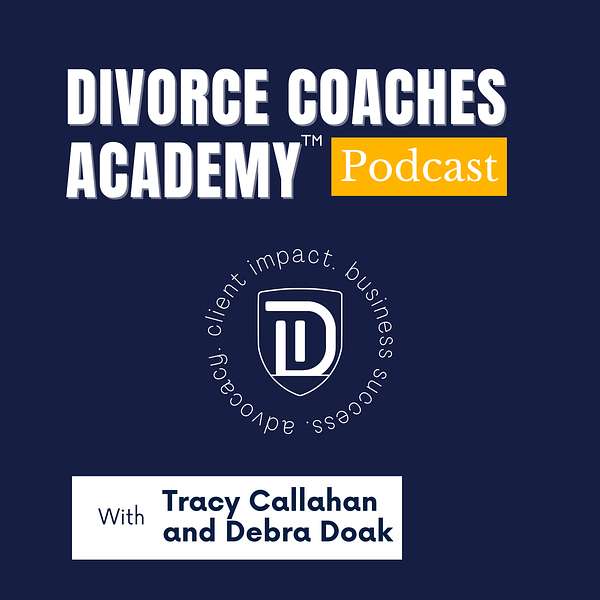
Divorce Coaches Academy
Divorce Coaches Academy podcast hosts Tracy Callahan and Debra Doak are on a mission to revolutionize the way families navigate divorce. We discuss topics to help professional divorce coaches succeed with clients and meet their business goals and we advocate (loudly sometimes) for the critical role certified divorce coaches play in the alternative dispute resolution process. Our goal is to create a community of divorce coaching professionals committed to reducing the financial and emotional impact of divorce on families.
Divorce Coaches Academy
What Makes a Divorce Coaching Program Worth Your Investment?
Send Us a Message (include your contact info if you'd like a reply)
What truly sets one divorce coach training program apart from others? If you're exploring divorce coaching as a new career or looking to expand your professional toolkit, this crucial question deserves a thoughtful answer.
Divorce Coaches Academy stands out because our curriculum is built by active practitioners, not theorists. As working divorce coaches and mediators, we've designed training that directly reflects what actually works with real clients facing real challenges. We know what it's like to sit across from someone in crisis, to navigate high-conflict co-parenting situations, and to help clients overwhelmed by legal complexities—because we do it every day.
We've created a program that combines the best of both worlds: flexible self-paced learning with structured live discussions and unparalleled mentorship. Our nine-week professional mentorship program pairs students with successful, experienced divorce coaches who provide direct feedback, guidance, and confidence-building support. This supervised practice is what transforms theoretical knowledge into true professional competence.
Recognizing that divorce processes differ worldwide, we've developed customized regional training tracks for the US, Australia, New Zealand, Canada, the Arabian Gulf, and soon France. Each track is adapted by local professionals who understand the specific legal frameworks and cultural contexts of their regions. Whether you're a family law attorney looking to transform your practice, a therapist expanding your services, or someone passionate about supporting families through transition, our training provides the foundation for meaningful, successful work. The community you'll join is equally valuable—dedicated professionals committed to raising standards in the field who continue to support each other long after certification.
Ready to learn more? Visit divorcecoachesacademy.com/divorcecoach or schedule a personal call with our program directors to discuss how DCA can support your professional journey.
Learn more about DCA® or any of the classes or events mentioned in this episode at the links below:
Website: www.divorcecoachesacademy.com
Instagram: @divorcecoachesacademy
LinkedIn: divorce-coaches-academy
Email: DCA@divorcecoachesacademy.com